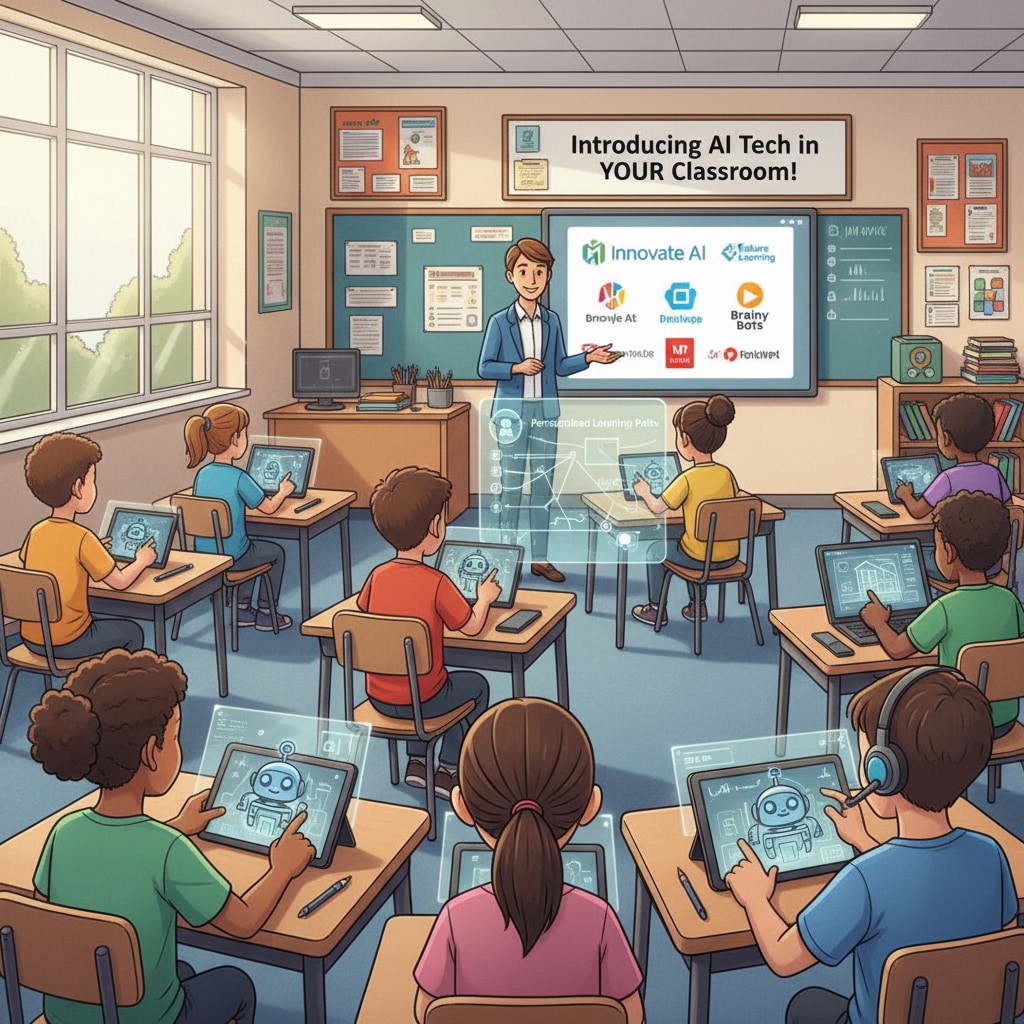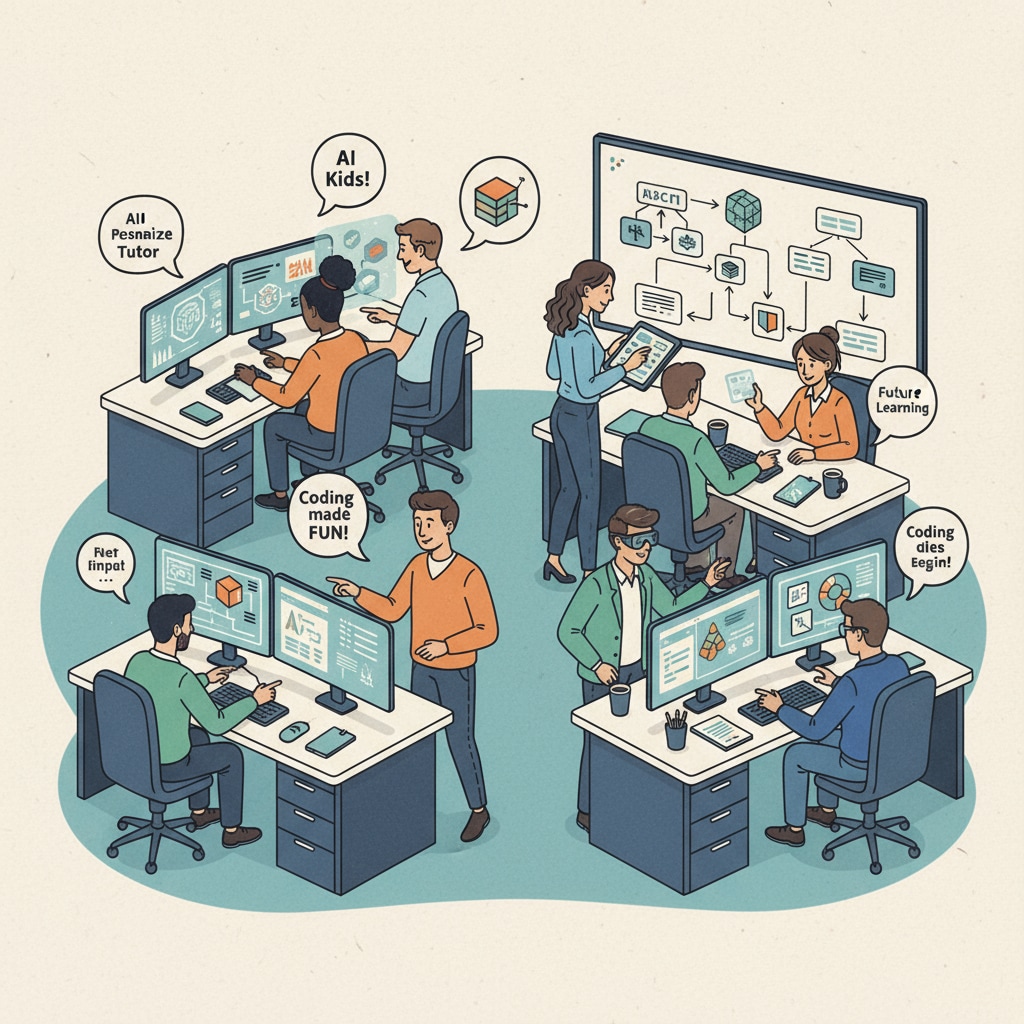Artificial intelligence, education, and tech companies are at the forefront of a new wave of change in the educational landscape. As AI technology continues to evolve at an astonishing pace, tech giants are increasingly eager to integrate their AI products into the K12 education system. This trend, while promising, is not without its complexities and controversies.

The Aggressive Push of Tech Companies
Tech companies see immense potential in the education market. With the rise of AI, they are developing various products such as intelligent tutoring systems, personalized learning platforms, and assessment tools. For example, companies like Google and Microsoft have been investing heavily in educational AI initiatives. Google offers tools that use AI to enhance classroom management and provide personalized learning experiences. Microsoft, on the other hand, has developed software that can analyze students’ learning patterns and offer targeted suggestions. These efforts are part of their broader strategy to capture a share of the lucrative education market. According to Artificial Intelligence on Britannica, AI’s application in education has been expanding rapidly in recent years.

The Research Gap
One of the major concerns is the lack of sufficient research on the long-term impact of AI in education. While the short-term benefits of using AI in the classroom, such as increased engagement and immediate feedback, are often highlighted, we know little about how these technologies will affect students’ development over time. There is a need for more in-depth studies to understand if AI is truly enhancing learning or just changing the way education is delivered. As stated on Artificial Intelligence in Education on Wikipedia, more research is required to fully grasp the implications of AI in the educational context.
Teachers also have valid concerns. Many are worried that the increasing presence of AI in the classroom will replace them. While AI can assist in certain tasks like grading and providing basic explanations, the role of a teacher in fostering critical thinking, emotional intelligence, and social skills is irreplaceable. Teachers need to be properly trained to work alongside AI technologies, rather than being phased out.
In addition, the public is raising questions about the ethics of using AI in education. Issues such as data privacy, algorithmic bias, and the potential for unequal access to AI-based educational resources are being debated. It is essential that these concerns are addressed to ensure that AI in education is used in a fair and responsible manner.
Readability guidance: The tech companies’ push into AI education has both potential benefits and significant drawbacks. From the research gap to teacher concerns and public doubts, it is clear that a more cautious approach is needed. We must balance the promise of technology with the need to safeguard the essence of education. As we move forward, it is crucial that all stakeholders – tech companies, educators, and the public – work together to ensure that AI in education serves the best interests of students.


